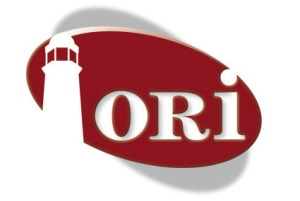When relocating to another country, especially one that speaks an unfamiliar language, expats are likely to face many challenges and must adapt to the host country's culture. Relocation companies can ease the orientation process when moving to Israel. Below is our interview with Mazi Efendovich from ORI, Organizational Resources International Ltd., on what to expect when moving to Israel and how to simplify the relocation process.
Life in Israel
Q: Why do people typically move to Israel?
A: Job opportunities and the start-up environment in advanced technology are major drawcards.
Q: What do people enjoy most about living in Israel?
A: The weather, food, beach, culture and dynamic business environment.
Q: What do newcomers struggle with most when they first arrive in Israel? Do you have any advice to help new arrivals deal with culture changes or loneliness?
A: Our advice is to start learning the language. In Israel, we speak Hebrew as a mother tongue.
Q: How would you rate the overall cost of living in Israel? Is there anything that's notably expensive or particularly cheap?
A: The cost of living is high; housing is the most expensive aspect of life here.
The relocation process
Q: How long before moving should expats start the relocation process? Could you break it down into stages for them?
A: We recommend starting the process four to six months before arrival.
- Stage 1: Pre-visit the country to get to know the surroundings and areas
- Stage 2: Arrival to temporary housing and starting the home-finding process
- Stage 3: Settling-in process
Q: Are there any bureaucratic challenges that new arrivals should be aware of?
A: Due to the language gap, it is highly recommended that the expat be accompanied by a local for all authority registrations.
Q: How easy is it for new arrivals to find a suitable home here? What advice would you give them to help in their search for housing? Is there any research or preparation they can do beforehand?
A: It is challenging to find a property in Israel; the market is dynamic, and it's a landlord's market. Therefore, demand and prices are high. If you are not Hebrew-speaking, our team provides housing services, including home-finding-, negotiation- and lease agreement assistance.
Q: Are there any particular areas and suburbs you would recommend to new arrivals?
A: Expats with children in school will usually rent a property in the area of Herzliya, which is close to the international school. Expats with no children will likely live in Tel Aviv.
Q: What is public transport like? Do people need a car to get around?
A: Tel Aviv is a walking city, and bicycles and public transport make it easy to get around. If one lives or works outside of Tel Aviv, we recommend having a car.
Q: How would you rate the healthcare in Israel? How can expats find good local doctors, dentists or other health professionals? Is local healthcare free, and should expats take out local or international health insurance?
A: Healthcare infrastructure in Israel is highly developed. All companies must provide health insurance to their assignees in Israel as part of the immigration requirement. Every insurance company provides a list of health providers. Part of our service is to stay in touch with the assignees and refer them to high-quality healthcare providers.
Q: Is it normal to get domestic help? Are there agencies you'd recommend for cleaners and nannies? Is this something you can help with?
A: Our company assists with domestic help and childcare assistance.
Settling in
Q: Do locals welcome new arrivals? Do expats and locals usually mix socially?
A: Israelis are very welcoming and warm people. Since most expats with children join international schools, most will socialise and meet other expats through the school. There is a thriving expat and international community in Tel Aviv.
Q: What advice would you give new arrivals looking to make friends, network and settle into their new life in Israel?
A: Israel is an outdoor country; people meet outdoors and join sports activities, clubs and various expat groups, which are readily available. The city is thriving with people from all corners of the globe.
Family and children
Q: How family-friendly is Israel? Do you have any particular tips for people relocating with children?
A: The cities in Israel are extremely family-oriented and child-friendly.
Q: What is schooling like in Israel? What options are available to expats? Do you have any recommendations or advice? Can your company help with the school search?
A: There are a few international schools in Israel. Our company assists with the applications, school visits and meetings.
Final thoughts
Q: How can people benefit from enlisting the services of a relocation agent when moving to Israel? Talk us through some of the main advantages of employing ORI.
A: Relocating to a new country is a challenging affair at the best of times, with language barriers, tough real-estate markets and endless paperwork. By working with our relocation company, we can ensure a smooth transition into the expat's new adventure. Knowing they will have a local and experienced destination service provider to assist with the whole process can ensure a smooth landing and remove unnecessary stress.
Q: Is there any advice you would like to offer new expat arrivals to Israel?
A: I would advise any expat who is coming to Israel to take advantage of their relocation and discover a country filled with wonderful people, excellent food, and rich in culture, nature and adventure.
►Interviewed May 2020



